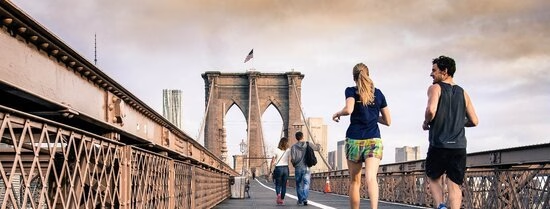Cities face challenges of sustainability, health, wealth, and social and economic cohesion. Cities are also rapidly growing, with 68% of the world population predicted to live in urban areas by 2050. Making cities healthier and more livable is a priority for global and local policy makers.
The way we use our cities is also changing. As citizens, we seek for cities that offer professional opportunities but also chances for relaxation, leisure. In other words, citizens seek for cities which offer a good quality of life. Hence, successful cities should not just foster economic growth, but also support and boost wellbeing, health and happiness.
Healthy and happy cities
Our experts have extensive experience measuring and researching the health and happiness effects of urban policies. For example: what characteristics of urban environments encourage people to healthier behaviours? What are the benefits of green infrastructure for human wellbeing? What are the effects on health of reducing speed limits from 50 to 30 kilometers?
From healthy cities to healthy people
A health and wellbeing perspective can make urban and transport interventions more successful. Encouraging healthy lifestyles or transforming the built environment can contribute to change people’s behaviour and improve their health and wellbeing.
Health and wellbeing carry tangible economic benefits, including reducing healthcare costs, boosting productivity, and increasing the attractiveness of cities. By borrowing from other disciplines, the experts at Erasmus UPT take the discussion out of the field of economics and into mainstream policy.
Innovative research
If needed, we develop our own research tools. With TRACKEUR we created a new innovative way to have detailed data from people in designated research areas. It is a great way to research the softer data such as well being, walking behavior and perceptions of a city.
Selection of recent projects
 Payamos
PayamosPayamos (Promotion of Physical Activity of the Youth through Active Mobility to School) promotes the physical activity of children of 9-12 years and adolescents of 14-18 years in seven European countries.
 Built environment and EEG Mood study
Built environment and EEG Mood studyAn empirical assessment of the health benefits of different urban environments using physiological and psychological measures, with the addition of virtual reality (VR)
 TrackEUR
TrackEURTRACKEUR is an app-based research tool that can collect real-time data on use of public space, perceptions, and wellbeing of users.
Contact our experts
 Anna Bornioli PhD
Anna Bornioli PhDSenior researcher Urban and Transport Economics
Email addressTelephone
